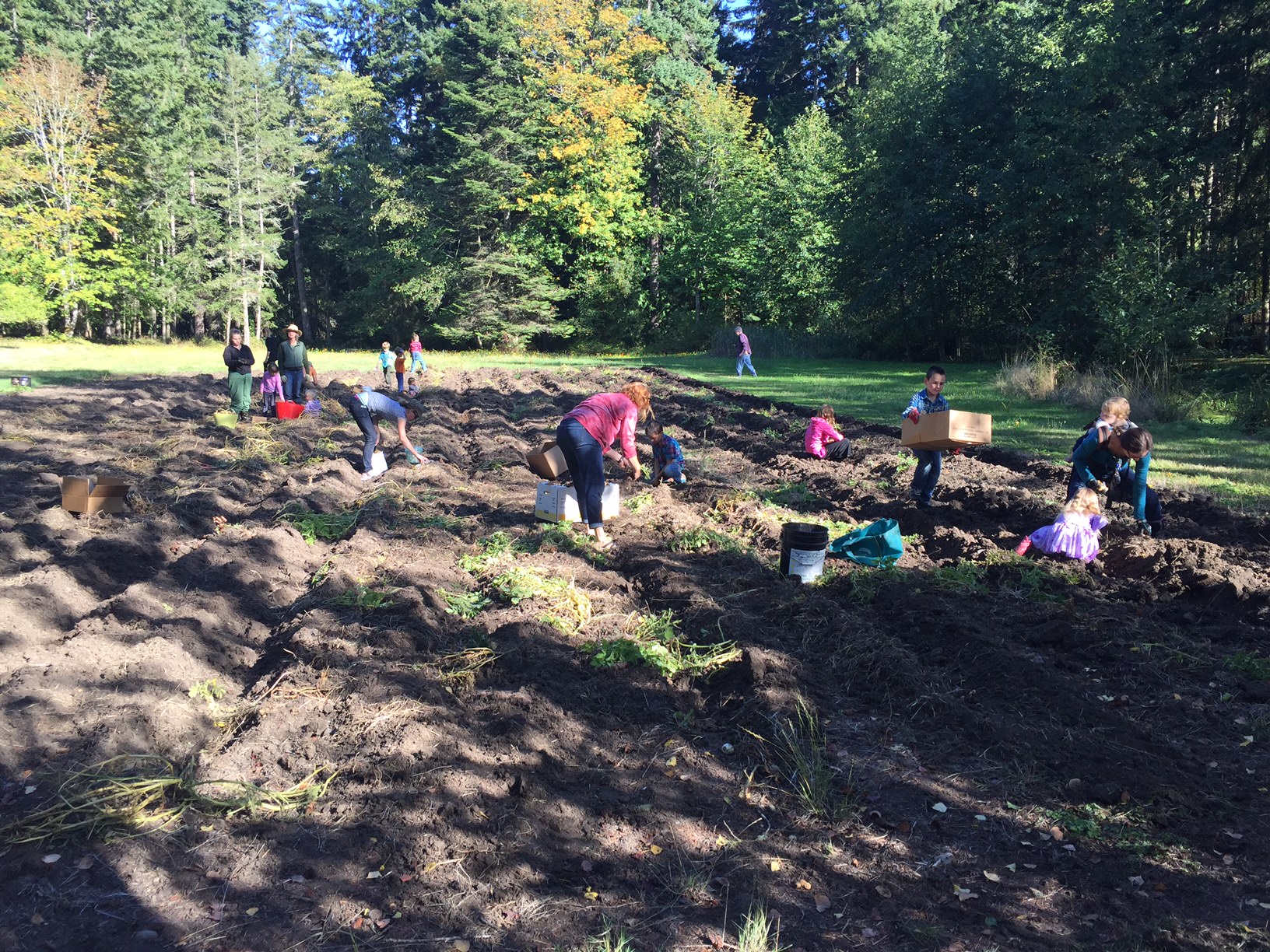
In order to engage volunteers a Gleaning Coordinator can take some of the following steps:
· Talk with civic/volunteer groups/clubs such as Rotary, Kiwanis, Masons, Lions Club, Soroptomists, local business associations, etc.
· Talk with church leaders especially outreach ministry coordinators.
· Hold informational events at public libraries such as a Gleaning Kickoff Event.
· Create booth materials to be used at public events: Fairs, Festivals, farmer’s markets, school open houses, conferences, etc.
· Make friends with Food Bank volunteers. Volunteers often are one link away from volunteers in other organizations or who want to volunteer. Explain your program to those involved in food security.
· Contact high school organizations for community service graduation requirements. These organizations may include: Key Club, NJROTC and AmeriCorps volunteers. Key contacts include guidance office, principals and public relations coordinators.
· Incorporate food waste education to your presentation repertoire. This opens the door to many youth groups, civic groups and public events. Many teachers, scout leaders and non-profit workers are interested in waste reduction. This includes the environmental impacts of gleaning what would otherwise be wasted.
· Get to know other waste reduction organizations in your area. Think of places that make it their business out of diverting waste from landfill such as Habitat for Humanity, other repurpose stores, restaurants that save compost materials and other green organizations. Also look to your municipal government departments, like Solid and Hazardous Waste, the Public Health Dept. and Parks and Recreation.
· Get to know Master Gardeners. Not only are they a free resource to educate yourself and the public in the crop types to be gleaned, they often want to glean themselves.
Most importantly make quality relationships with organization personnel and volunteers. Be available by email and phone. Maintain continuous contact through newsletters. Always return phone and email messages in a prompt and friendly manner and treat each volunteer with respect. To help in this endeavor, be sure to maintain a centralized and updated volunteer contact excel file with all of the volunteer's names, emails, phone numbers, and addresses. VOLUNTEER EXCEL FILE
Building genuine relationships with the PEOPLE that volunteer their TIME to the gleaning program creates incalculable benefits for the greater community. Gleaners are more appropriately matched to gleaning opportunities when their concerns, interests, and limitations are understood. When gleaners are allowed to distribute harvested goods to the locations of choice food will spread to more locations and populations. There are so many churches services, community dinners, school events and social happenings in every community it would be near impossible for one person to know them all. This benefit is twofold in that it works as a marketing campaign at locations and to people otherwise unreached. Continue to educate your volunteers about the importance of the program towards improving nutrition, benefitting community health, reducing waste and spreading local abundance. Update volunteers with statistics of the program as they become available so they can share in the sense of accomplishment. Ensure that volunteers feel appreciated throughout the growing year by celebrating their success in newsletters, press releases, and events. Throw a celebration at the beginning of the year to meet and greet new volunteers and one at the end of the year to acknowledge their accomplishments, promote fellowship, and wrap up. GLEANING KICK OFF EVENT FLYER
Dissemination of local knowledge is another incalculable benefit from building genuine relationships. Gleaners live in the areas where they glean. Many know the seasons, when to harvest and how to prepare and store produce. Those who are new to gardening and harvesting will quickly learn with fellow volunteers to guide them. As a coordinator allow the channels of information to flow freely. Providing seasonal produce information to volunteers from researched sources is extremely helpful but don’t be afraid to create scenarios where information is passed laterally, from volunteer to volunteer. This program was formed not only out of the desire to harvest produce and reduce waste but also for the opportunity to create friendships, feel engaged in the community and spread knowledge.


